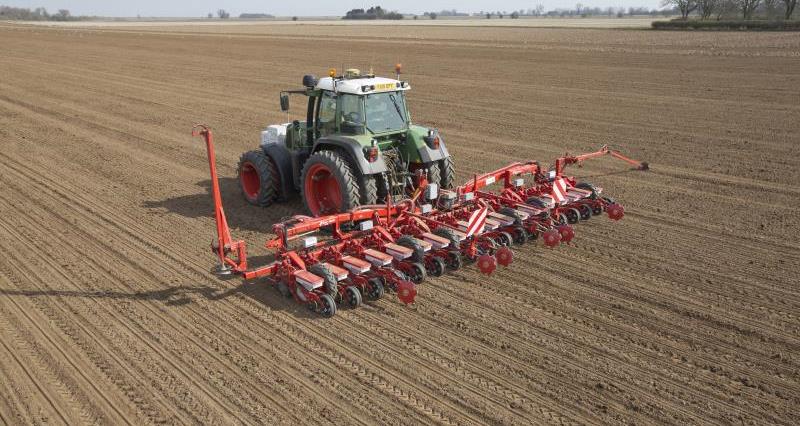
NFU Sugar has raised concerns over plans to introduce a ban on neonicotinoids which have previously been granted for use under emergency authorisations.
Defra will explore legislative options that would legally prevent the future use of three specific neonicotinoids – clothianidin, imidacloprid and thiamethoxam – entirely.
In recent years, the virus yellows disease has caused crop losses of 80% for some British sugar beet growers.
As a result, emergency authorisations were granted by the previous government, on the basis of forecast disease pressure, in order to protect the viability of the homegrown sugar beet sector.
This year’s virus yellows infection rate was forecast by agricultural researchers at Rothamsted Research to be 83%.
But NFU Sugar warned that without the use of cruiser SB treated seed, "it is likely that much of the crop would have been lost".
Defra said the plans marked an “important step forward in delivering on election commitment to safeguarding bees, butterflies and the wider environment”.
However, NFU Sugar noted that sugar beet "is not a flowering crop, meaning pollinators such as bees and butterflies are not attracted to it".
NFU Sugar Board chair Michael Sly said: “The government’s position on neonicotinoids – a vital tool in protecting homegrown sugar beet from the virus yellows disease – has been clear since the publication of its manifesto.
“I am concerned about what a review of the emergency authorisation process could mean for British sugar beet growers’ access to crop protection products, which they use in a targeted and responsible way.
“It could set a worrying precedent regarding the principle of the EA process if the government simply has a list of products which are unable to be applied for.
“The current process is one based on strict regulation. Use is only granted if the virus yellows infection rate forecast, predicted by the independent scientific institution Rothamsted Research, meets the threshold set by Defra.
“Going forward, it is vital that Defra works with the industry to ensure that the homegrown sugar beet industry."
Defra said the legal requirements for emergency authorisations have not changed today and any applications for 2025 will be considered under the law as it stands.
